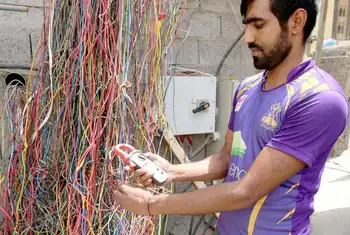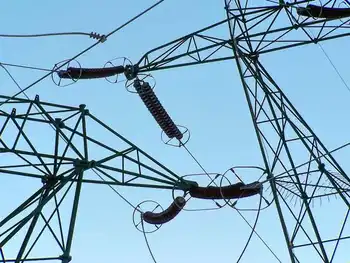Audit critical of Louisiana utility regulators
By Associated Press
NFPA 70e Training - Arc Flash
Our customized live online or in‑person group training can be delivered to your staff at your location.

- Live Online
- 6 hours Instructor-led
- Group Training Available
The auditor's office and the Public Service Commission clashed in 2003 when an audit said the PSC fails to look closely at utilities' finances, lacks crucial documents and is inconsistent in its rate-setting. PSC Chairman Jay Blossman said at the time that the allegations were political — Blossman and then-Legislative Auditor Dan Kyle were both running for governor.
The PSC disputes much of the new report, which is the result of an investigation under the new legislative auditor, Steve Theriot, and has similar findings.
In a terse response to the complaint about free meals, the PSC said it follows existing state ethics rules.
"The PSC does, and will continue to, comply with all statutory rules and PSC orders regarding gifts and meals/beverages," the panel said in a written response to the audit.
The commission, made up of five elected members, regulates electric, gas, telephone and other utility firms, including moving companies and waterworks.
The new audit finds weakness in the PSC's so-called "independence standards" — an overly cozy relationship with the firms it regulates. The report said Blossman accepted 49 free meals from regulated firms from 2002 through 2006, for a total of $1,546, or about $32 per meal.
"Our point is that accepting meals or beverages from entities the commission regulates could create the appearance of a conflict of interest," the audit said.
The report recommends that the Legislature consider imposing a new ethics law on the commission similar to the one lawmakers imposed on themselves earlier this year: They can accept meals worth no more than $50 from registered lobbyists.
Blossman, R-Mandeville, did not immediately return a call for comment. Blossman, whose term expires in December, is not running for re-election.
The elimination of free meals was one of more than a dozen changes the auditor recommended to the PSC. The report found the PSC regulators had refused to fully follow any of the 19 recommendations made in 2003, including:
• Develop a plan that requires PSC staff to determine if utility rates are appropriate. The PSC responded that the commission already performs thorough rate reviews.
• Document the rationale for "outsourcing," when the PSC hires outside lawyers or consultants. The PSC partly agreed, but insisted that the reasons for most of their hires are obvious.
The report said Blossman accepted free meals far more often than other commissioners. The other commissioners in office during the 2002-2006 period accepted the following:
• Lambert Boissiere III, D-New Orleans, four meals for $179, an average of $45 each.
• Foster Campbell, D-Elm Grove, two meals or beverages for $8, a $4 average.
• Former commissioner Irma Dixon, D-New Orleans, nine meals for $201, a $22 average.
• Jimmy Field, R-Baton Rouge, 32 meals for $952, a $30 average.
• Former commissioner Dale Sittig, D-Eunice, 52 meals for $794, a $15 average.
The report documents the total number of times PSC members, their spouses, and staffers accepted free meals and drinks. Including staffers and spouses, there were 646 instances of firms providing free meals, at a total value of $16,277 or about $25 per meal.
The meals came from companies including BellSouth Corp., Entergy Corp., Pointe Coupee Electric, Southwestern Electric Power Co. and various law firms that represent utilities.











